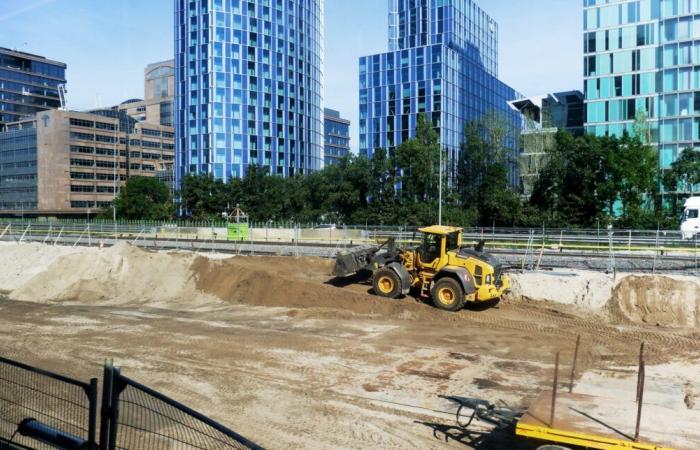ProRail wants more freedom of movement when tendering maintenance. In addition, the railway manager wants to be involved earlier in political plans that require something from the railway, and it would help if the rules regarding nature protection along the railway became less strict. ProRail stated this in the run-up to a discussion with the House of Representatives about tenders.
On November 7, the Standing Committee for Infrastructure and Water Management of the House of Representatives will organize a consultation with various experts and organizations about tenders for infrastructure projects. “In recent years it has become increasingly complex to carry out this task,” ProRail writes in preparation for that consultation. ‘This is due to a large increase in the amount of work and ambitions, combined with the assignment to carry out this work with minimal disruption to travelers, shippers and the environment.’
The tight labor market, the scarcity of materials and the complexity of legislation and regulations also make it increasingly difficult to maintain or construct infrastructure, ProRail writes. ‘That presents us with issues that sometimes require drastic measures.’ To solve the problems, the rail manager is considering a number of possible solutions, including limiting the number of projects and working on the track more often during the day and on working days.
Complex tenders, nature conservation and big ambitions
In addition, according to ProRail, it would help if the European rules surrounding tendering became more flexible. These require the rail manager to ‘continue to go through a complex, expensive and time-consuming tender process’, it states. For example, the scope and nature of the work must be described in detail, while according to ProRail it would be better to have more freedom of movement. ‘This offers market parties the opportunity to also apply their knowledge and innovation capacity during implementation.’
ProRail also proposes to simplify the rules for protecting nature along the track. “ProRail encourages nature on the roadside, which promotes ecology,” it writes. ‘At the same time, this is only feasible if ProRail can continue to perform its core tasks. ProRail needs proportionate and enforceable legislation that takes into account safety, ecological importance, time, costs and the social importance of the railway.’ For example, according to the railway manager, one and a half to two years of ecological research is too long.
Finally, ProRail calls for executive parties to be involved earlier in political ambitions. “It is important to remain realistic: not all projects can be carried out as desired and have a long lead time of years,” the organization writes. ‘Speeding up certain projects can be at the expense of other, critical activities. In order to realize ambitions, it is therefore important that ProRail is involved in shaping ambitions from the start,” says the manager.
Everyone around the table
Each of the above measures has previously been proposed by ProRail, but with this position in preparation for the discussion with the committee, the manager is once again reinforcing these wishes. The committee organizes the so-called ’round table discussion’ because it notes that projects sometimes do not go ahead or take too long due to the tendering method. Rijkswaterstaat, but also contractors such as Dura Vermeer and experts and professional groups have been invited to ProRail.
Prior to the conversation, Dura Vermeer advocates a central long-term approach. According to the contractor, a ‘Dutch Transition Fund’ (NDF) can help to structurally tackle the Replacement and Renovation Task (V&R) by bundling projects into portfolios and using two-phase contracts. Dura Vermeer calls on politicians to take responsibility so that projects run faster and better.
Also read:






